Press release
Innovations and Sustainability in the Modified Atmosphere Packaging Industry
The global Modified Atmosphere Packaging (MAP) market has reached a significant milestone, valued at US$ 19.52 billion in 2023. With a projected compound annual growth rate (CAGR) of 6.6%, it is expected to skyrocket to around US$ 39.43 billion by 2034. This growth trajectory highlights the increasingly pivotal role that MAP plays across various industries, particularly in food packaging, where it helps extend the shelf life of perishable goods.
Get All the Details in Our Solution - Download Brochure : https://www.towardspackaging.com/download-brochure/5077
What is Modified Atmosphere Packaging?
Modified Atmosphere Packaging (MAP) is a specialized packaging technique that alters the composition of gases within the packaging environment to preserve the freshness, texture, and quality of perishable products like fruits, vegetables, meats, and seafood. By adjusting the oxygen, carbon dioxide, and nitrogen levels inside the package, MAP slows down the aging process and inhibits the growth of bacteria and mold, making it an essential tool for both retailers and consumers.
This technology has gained widespread acceptance as it aligns perfectly with evolving consumer needs and market demands. The increasing preference for ready-to-eat, on-the-go foods, combined with the growing emphasis on reducing food waste, has contributed to MAP's rapid adoption. Additionally, rising concerns about food safety and the quest for sustainability have further driven innovation and refinement in MAP techniques.
AI's Role in Revolutionizing the Modified Atmosphere Packaging Market
One of the most groundbreaking advancements in the MAP sector is the integration of Artificial Intelligence (AI). As the packaging industry continues to evolve, AI is helping optimize the entire process of packaging perishable goods. AI's ability to track real-time data, monitor temperatures, and use sensors to adjust the packaging environment in real time is revolutionizing how food products are packaged and stored.
Estimates suggest that food products packaged with AI-powered MAP solutions can have their shelf life extended by up to 40%. This significant increase not only reduces food waste but also offers a new level of operational efficiency throughout the supply chain. Through the use of unique identification technologies such as RFID (Radio Frequency Identification) and QR codes, AI aids in precise tracking of products, ensuring better inventory management and quality control. Moreover, AI's ability to improve warehouse functionality, streamline product consistency, and maintain high safety standards helps companies boost productivity while keeping operational costs low.
By incorporating AI into MAP systems, food manufacturers and retailers are not just enhancing shelf life but also creating a smarter, more sustainable way to meet consumer demands for fresh and safe food products. These technological advancements make MAP a future-proof solution in an ever-changing food industry.
Key Trends Shaping the Future of MAP
Several key trends are driving the growth and transformation of the MAP market. These trends are influencing both consumer behaviors and industry practices, making MAP a cornerstone of modern food packaging:
• Convenience Packaging: Modern consumers lead fast-paced lifestyles, which has fueled the demand for convenient, ready-to-eat, and portion-controlled food options. MAP allows manufacturers to create packaging that meets these needs by preserving freshness while ensuring easy access to the product. From pre-packed salads to ready-to-heat meals, MAP is integral to the growing convenience food market.
• Sustainable Packaging Solutions: As environmental concerns continue to rise, the demand for eco-friendly packaging solutions is gaining momentum. The MAP industry is no exception. Manufacturers are actively exploring biodegradable and recyclable materials to replace traditional plastics. With a growing push toward reducing plastic waste, the shift to sustainable packaging methods is not only a consumer preference but also a regulatory requirement in many regions.
• Retail Adoption and Private Labels: Major retailers are increasingly adopting MAP for their private label products, aiming to differentiate their offerings in a competitive market. By utilizing MAP, retailers can extend the shelf life of their products, reduce food waste, and offer a superior product experience to their customers. Additionally, the use of MAP can help these retailers meet rising consumer expectations for fresh and high-quality food products.
• Stricter Regulatory Compliance: The global food industry is under greater scrutiny than ever before, with governments and regulatory bodies implementing stricter regulations to ensure food safety and packaging standards. In response, food companies are increasingly investing in MAP technologies that not only preserve product quality but also comply with these stringent regulations. This is especially important in the context of international trade, where adherence to local packaging standards is critical to market access.
The Road Ahead for the Modified Atmosphere Packaging Market
Looking forward, the modified atmosphere packaging market is set for continued growth, propelled by advancements in technology, consumer demand for fresh food, and the need to reduce waste. As AI continues to play a crucial role in packaging optimization and sustainability becomes a driving force in the industry, MAP will likely evolve into an even more efficient, eco-friendly solution for preserving perishable goods.
The future of MAP promises a blend of innovation and sustainability, offering endless opportunities for manufacturers, retailers, and consumers alike. As the market continues to mature, it is expected to foster further technological advancements that will make food packaging smarter, greener, and more cost-effective. For businesses within the packaging and food sectors, embracing MAP technologies is not just a trend but an essential strategy for staying ahead in a competitive marketplace.
Browse More Insights:
Connected Packaging Market: https://www.towardspackaging.com/insights/connected-packaging-market-sizing
Contract Packaging Market: https://www.towardspackaging.com/insights/contract-packaging-market-sizing
Bulk Container Packaging Market: https://www.towardspackaging.com/insights/bulk-container-packaging-market-sizing
Returnable Glass Bottles Market: https://www.towardspackaging.com/insights/returnable-glass-bottle-market-sizing
Polyethylene Films Market: https://www.towardspackaging.com/insights/polyethylene-films-market-sizing
Pharmaceutical Glass Packaging Market: https://www.towardspackaging.com/insights/pharmaceutical-glass-packaging-market-sizing
Coffee Bags Market: https://www.towardspackaging.com/insights/coffee-bags-market-sizing
Packaging Printing Market: https://www.towardspackaging.com/insights/packaging-printing-market-sizing
Child Resistant Packaging Market: https://www.towardspackaging.com/insights/child-resistant-packaging-market-sizing
Carton Packaging Market: https://www.towardspackaging.com/insights/carton-packaging-market-sizing
Recent Developments in the Modified Atmosphere Packaging Industry: Innovations and Sustainability Initiatives
The Modified Atmosphere Packaging (MAP) industry has seen remarkable advancements in recent years, as companies embrace innovative technologies and sustainable solutions to meet the growing demands for food preservation and eco-friendly practices. Several key developments in the MAP sector are not only reshaping the industry but also reinforcing its role in reducing food waste and enhancing sustainability efforts across the globe.
Solidus Solutions: A Sustainable Leap with FUTURLIN
In January 2023, Solidus Solutions made a significant investment of USD 11.5 million in a cutting-edge range of packaging solutions, introducing the FUTURLIN packaging line. This innovative packaging is designed to be both sustainable and durable, making it an attractive option for businesses seeking to reduce their environmental footprint. FUTURLIN, which incorporates modified atmosphere packaging (MAP) technology, is currently being rolled out across Europe in countries such as Spain, the UK, France, Poland, Germany, and the Benelux region. Solidus Solutions' commitment to sustainability is evident in this new initiative, which aims to address the dual challenge of extending shelf life while using materials that are more environmentally friendly. As the demand for sustainable packaging continues to rise, the FUTURLIN range is poised to become a game-changer in the MAP market.
Moy Park and Klöckner Pentaplast: A Step Toward Reducing Plastic Consumption
In March 2024, Moy Park, a major player in the food industry, took another step toward its sustainability goals by incorporating Klöckner Pentaplast's KP Elite, a modified atmosphere packaging tray made entirely of R-PET (recycled polyethylene terephthalate), into its packaging lineup. This move aligns with Moy Park's ambitious target to reduce its plastic consumption by 50 tons. The switch to mono-material solutions represents a critical shift toward more environmentally responsible packaging, further driving the trend of circularity within the food industry. By utilizing R-PET, a material that can be recycled indefinitely, Moy Park is not only reducing its environmental impact but also contributing to a more sustainable future for food packaging.
ProAmpac and Sammi: A Revolutionary Fiber-Based MAP Sandwich Pack
April 2024 saw another exciting development in the MAP industry when ProAmpac, a leader in flexible packaging, partnered with Sammi to launch a fiber-based MAP sandwich pack. This new packaging solution is designed specifically to reduce food spoilage and extend the shelf life of packaged products, making it a breakthrough innovation in the fight against food waste. By using fiber-based materials in MAP, this packaging aims to provide a more sustainable alternative to traditional plastic-based options. As the food industry continues to grapple with the challenges of waste and spoilage, this collaboration highlights the growing importance of fiber-based and renewable packaging solutions in food preservation.
Berry Global Group: Strengthening Substrate Capabilities with a $70 Million Investment
In February 2021, Berry Global Group, Inc. made a strategic investment of over USD 70 million to bolster its wipe substrate capabilities in the United States. This major investment includes the installation of a new production line, significantly increasing the company's manufacturing capacity. This move is aimed at enhancing Berry Global's ability to meet the evolving demands of its global clients, particularly as the demand for sustainable and efficient packaging continues to rise. Berry Global's commitment to expanding its operations underscores its dedication to supporting the growth of the packaging industry, while ensuring that it remains at the forefront of innovation and sustainability.
Amcor Plc: A Carbon Reduction Initiative with a Visible Impact
Amcor Plc, a global leader in packaging, introduced a pioneering sustainability initiative in January 2021 with the launch of the 'Reducing CO2 Packaging' label. Developed in collaboration with the Carbon Trust, this label serves as a visible indicator on Amcor's packaging products, signifying a significant reduction in their carbon footprint. This strategic move is part of Amcor's broader lifecycle assessment service, which enables brands to evaluate the environmental impact of their packaging from the raw material stage through to the end of use. By providing a tangible way for brands to communicate their commitment to sustainability, Amcor is setting a new benchmark in the packaging industry. The 'Reducing CO2 Packaging' label not only offers a means for brands to enhance their environmental credentials but also empowers consumers to make informed decisions about the products they purchase.
The Future of MAP and Sustainability in Packaging
The recent developments in the Modified Atmosphere Packaging industry reflect a broader trend towards sustainability, innovation, and the need for solutions that address the challenges of food preservation and environmental impact. As companies like Solidus Solutions, Moy Park, ProAmpac, Berry Global, and Amcor continue to lead the way with innovative packaging technologies, the MAP market is poised for continued growth.
From fiber-based packaging and R-PET trays to investments in production capabilities and carbon reduction initiatives, the industry is making significant strides in creating packaging solutions that are not only effective in extending shelf life but also align with global sustainability goals. With the rising demand for eco-friendly and sustainable packaging solutions, MAP is more than just a preservation technique-it's a critical component of the future of packaging.
Baner
Invest in Our Premium Strategic Solution: https://www.towardspackaging.com/price/5077
Review the Full TOC for the Modified Atmosphere Packaging Market Report: https://www.towardspackaging.com/table-of-content/modified-atmosphere-packaging-market
Get the latest insights on industry segmentation with our Annual Membership https://www.towardshealthcare.com/get-an-annual-membership
About Us
Towards Healthcare is a leading global provider of technological solutions, clinical research services, and advanced analytics to the healthcare sector, committed to forming creative connections that result in actionable insights and creative innovations. We are a global strategy consulting firm that assists business leaders in gaining a competitive edge and accelerating growth. We are a provider of technological solutions, clinical research services, and advanced analytics to the healthcare sector, committed to forming creative connections that result in actionable insights and creative innovations.
We've prepared a service to support you. Please feel free to contact us at sales@towardshealthcare.com
Web: https://www.towardshealthcare.com
For Latest Update Follow Us: https://www.linkedin.com/company/towards-healthcare
Get All the Details in Our Solution - Download Brochure : https://www.towardspackaging.com/download-brochure/5077
What is Modified Atmosphere Packaging?
Modified Atmosphere Packaging (MAP) is a specialized packaging technique that alters the composition of gases within the packaging environment to preserve the freshness, texture, and quality of perishable products like fruits, vegetables, meats, and seafood. By adjusting the oxygen, carbon dioxide, and nitrogen levels inside the package, MAP slows down the aging process and inhibits the growth of bacteria and mold, making it an essential tool for both retailers and consumers.
This technology has gained widespread acceptance as it aligns perfectly with evolving consumer needs and market demands. The increasing preference for ready-to-eat, on-the-go foods, combined with the growing emphasis on reducing food waste, has contributed to MAP's rapid adoption. Additionally, rising concerns about food safety and the quest for sustainability have further driven innovation and refinement in MAP techniques.
AI's Role in Revolutionizing the Modified Atmosphere Packaging Market
One of the most groundbreaking advancements in the MAP sector is the integration of Artificial Intelligence (AI). As the packaging industry continues to evolve, AI is helping optimize the entire process of packaging perishable goods. AI's ability to track real-time data, monitor temperatures, and use sensors to adjust the packaging environment in real time is revolutionizing how food products are packaged and stored.
Estimates suggest that food products packaged with AI-powered MAP solutions can have their shelf life extended by up to 40%. This significant increase not only reduces food waste but also offers a new level of operational efficiency throughout the supply chain. Through the use of unique identification technologies such as RFID (Radio Frequency Identification) and QR codes, AI aids in precise tracking of products, ensuring better inventory management and quality control. Moreover, AI's ability to improve warehouse functionality, streamline product consistency, and maintain high safety standards helps companies boost productivity while keeping operational costs low.
By incorporating AI into MAP systems, food manufacturers and retailers are not just enhancing shelf life but also creating a smarter, more sustainable way to meet consumer demands for fresh and safe food products. These technological advancements make MAP a future-proof solution in an ever-changing food industry.
Key Trends Shaping the Future of MAP
Several key trends are driving the growth and transformation of the MAP market. These trends are influencing both consumer behaviors and industry practices, making MAP a cornerstone of modern food packaging:
• Convenience Packaging: Modern consumers lead fast-paced lifestyles, which has fueled the demand for convenient, ready-to-eat, and portion-controlled food options. MAP allows manufacturers to create packaging that meets these needs by preserving freshness while ensuring easy access to the product. From pre-packed salads to ready-to-heat meals, MAP is integral to the growing convenience food market.
• Sustainable Packaging Solutions: As environmental concerns continue to rise, the demand for eco-friendly packaging solutions is gaining momentum. The MAP industry is no exception. Manufacturers are actively exploring biodegradable and recyclable materials to replace traditional plastics. With a growing push toward reducing plastic waste, the shift to sustainable packaging methods is not only a consumer preference but also a regulatory requirement in many regions.
• Retail Adoption and Private Labels: Major retailers are increasingly adopting MAP for their private label products, aiming to differentiate their offerings in a competitive market. By utilizing MAP, retailers can extend the shelf life of their products, reduce food waste, and offer a superior product experience to their customers. Additionally, the use of MAP can help these retailers meet rising consumer expectations for fresh and high-quality food products.
• Stricter Regulatory Compliance: The global food industry is under greater scrutiny than ever before, with governments and regulatory bodies implementing stricter regulations to ensure food safety and packaging standards. In response, food companies are increasingly investing in MAP technologies that not only preserve product quality but also comply with these stringent regulations. This is especially important in the context of international trade, where adherence to local packaging standards is critical to market access.
The Road Ahead for the Modified Atmosphere Packaging Market
Looking forward, the modified atmosphere packaging market is set for continued growth, propelled by advancements in technology, consumer demand for fresh food, and the need to reduce waste. As AI continues to play a crucial role in packaging optimization and sustainability becomes a driving force in the industry, MAP will likely evolve into an even more efficient, eco-friendly solution for preserving perishable goods.
The future of MAP promises a blend of innovation and sustainability, offering endless opportunities for manufacturers, retailers, and consumers alike. As the market continues to mature, it is expected to foster further technological advancements that will make food packaging smarter, greener, and more cost-effective. For businesses within the packaging and food sectors, embracing MAP technologies is not just a trend but an essential strategy for staying ahead in a competitive marketplace.
Browse More Insights:
Connected Packaging Market: https://www.towardspackaging.com/insights/connected-packaging-market-sizing
Contract Packaging Market: https://www.towardspackaging.com/insights/contract-packaging-market-sizing
Bulk Container Packaging Market: https://www.towardspackaging.com/insights/bulk-container-packaging-market-sizing
Returnable Glass Bottles Market: https://www.towardspackaging.com/insights/returnable-glass-bottle-market-sizing
Polyethylene Films Market: https://www.towardspackaging.com/insights/polyethylene-films-market-sizing
Pharmaceutical Glass Packaging Market: https://www.towardspackaging.com/insights/pharmaceutical-glass-packaging-market-sizing
Coffee Bags Market: https://www.towardspackaging.com/insights/coffee-bags-market-sizing
Packaging Printing Market: https://www.towardspackaging.com/insights/packaging-printing-market-sizing
Child Resistant Packaging Market: https://www.towardspackaging.com/insights/child-resistant-packaging-market-sizing
Carton Packaging Market: https://www.towardspackaging.com/insights/carton-packaging-market-sizing
Recent Developments in the Modified Atmosphere Packaging Industry: Innovations and Sustainability Initiatives
The Modified Atmosphere Packaging (MAP) industry has seen remarkable advancements in recent years, as companies embrace innovative technologies and sustainable solutions to meet the growing demands for food preservation and eco-friendly practices. Several key developments in the MAP sector are not only reshaping the industry but also reinforcing its role in reducing food waste and enhancing sustainability efforts across the globe.
Solidus Solutions: A Sustainable Leap with FUTURLIN
In January 2023, Solidus Solutions made a significant investment of USD 11.5 million in a cutting-edge range of packaging solutions, introducing the FUTURLIN packaging line. This innovative packaging is designed to be both sustainable and durable, making it an attractive option for businesses seeking to reduce their environmental footprint. FUTURLIN, which incorporates modified atmosphere packaging (MAP) technology, is currently being rolled out across Europe in countries such as Spain, the UK, France, Poland, Germany, and the Benelux region. Solidus Solutions' commitment to sustainability is evident in this new initiative, which aims to address the dual challenge of extending shelf life while using materials that are more environmentally friendly. As the demand for sustainable packaging continues to rise, the FUTURLIN range is poised to become a game-changer in the MAP market.
Moy Park and Klöckner Pentaplast: A Step Toward Reducing Plastic Consumption
In March 2024, Moy Park, a major player in the food industry, took another step toward its sustainability goals by incorporating Klöckner Pentaplast's KP Elite, a modified atmosphere packaging tray made entirely of R-PET (recycled polyethylene terephthalate), into its packaging lineup. This move aligns with Moy Park's ambitious target to reduce its plastic consumption by 50 tons. The switch to mono-material solutions represents a critical shift toward more environmentally responsible packaging, further driving the trend of circularity within the food industry. By utilizing R-PET, a material that can be recycled indefinitely, Moy Park is not only reducing its environmental impact but also contributing to a more sustainable future for food packaging.
ProAmpac and Sammi: A Revolutionary Fiber-Based MAP Sandwich Pack
April 2024 saw another exciting development in the MAP industry when ProAmpac, a leader in flexible packaging, partnered with Sammi to launch a fiber-based MAP sandwich pack. This new packaging solution is designed specifically to reduce food spoilage and extend the shelf life of packaged products, making it a breakthrough innovation in the fight against food waste. By using fiber-based materials in MAP, this packaging aims to provide a more sustainable alternative to traditional plastic-based options. As the food industry continues to grapple with the challenges of waste and spoilage, this collaboration highlights the growing importance of fiber-based and renewable packaging solutions in food preservation.
Berry Global Group: Strengthening Substrate Capabilities with a $70 Million Investment
In February 2021, Berry Global Group, Inc. made a strategic investment of over USD 70 million to bolster its wipe substrate capabilities in the United States. This major investment includes the installation of a new production line, significantly increasing the company's manufacturing capacity. This move is aimed at enhancing Berry Global's ability to meet the evolving demands of its global clients, particularly as the demand for sustainable and efficient packaging continues to rise. Berry Global's commitment to expanding its operations underscores its dedication to supporting the growth of the packaging industry, while ensuring that it remains at the forefront of innovation and sustainability.
Amcor Plc: A Carbon Reduction Initiative with a Visible Impact
Amcor Plc, a global leader in packaging, introduced a pioneering sustainability initiative in January 2021 with the launch of the 'Reducing CO2 Packaging' label. Developed in collaboration with the Carbon Trust, this label serves as a visible indicator on Amcor's packaging products, signifying a significant reduction in their carbon footprint. This strategic move is part of Amcor's broader lifecycle assessment service, which enables brands to evaluate the environmental impact of their packaging from the raw material stage through to the end of use. By providing a tangible way for brands to communicate their commitment to sustainability, Amcor is setting a new benchmark in the packaging industry. The 'Reducing CO2 Packaging' label not only offers a means for brands to enhance their environmental credentials but also empowers consumers to make informed decisions about the products they purchase.
The Future of MAP and Sustainability in Packaging
The recent developments in the Modified Atmosphere Packaging industry reflect a broader trend towards sustainability, innovation, and the need for solutions that address the challenges of food preservation and environmental impact. As companies like Solidus Solutions, Moy Park, ProAmpac, Berry Global, and Amcor continue to lead the way with innovative packaging technologies, the MAP market is poised for continued growth.
From fiber-based packaging and R-PET trays to investments in production capabilities and carbon reduction initiatives, the industry is making significant strides in creating packaging solutions that are not only effective in extending shelf life but also align with global sustainability goals. With the rising demand for eco-friendly and sustainable packaging solutions, MAP is more than just a preservation technique-it's a critical component of the future of packaging.
Baner
Invest in Our Premium Strategic Solution: https://www.towardspackaging.com/price/5077
Review the Full TOC for the Modified Atmosphere Packaging Market Report: https://www.towardspackaging.com/table-of-content/modified-atmosphere-packaging-market
Get the latest insights on industry segmentation with our Annual Membership https://www.towardshealthcare.com/get-an-annual-membership
About Us
Towards Healthcare is a leading global provider of technological solutions, clinical research services, and advanced analytics to the healthcare sector, committed to forming creative connections that result in actionable insights and creative innovations. We are a global strategy consulting firm that assists business leaders in gaining a competitive edge and accelerating growth. We are a provider of technological solutions, clinical research services, and advanced analytics to the healthcare sector, committed to forming creative connections that result in actionable insights and creative innovations.
We've prepared a service to support you. Please feel free to contact us at sales@towardshealthcare.com
Web: https://www.towardshealthcare.com
For Latest Update Follow Us: https://www.linkedin.com/company/towards-healthcare
Permanent link to this press release:
Copy
Please set a link in the press area of your homepage
to this press release on woodPRI. woodPRI disclaims liability for any content contained in
this release.
Recommend
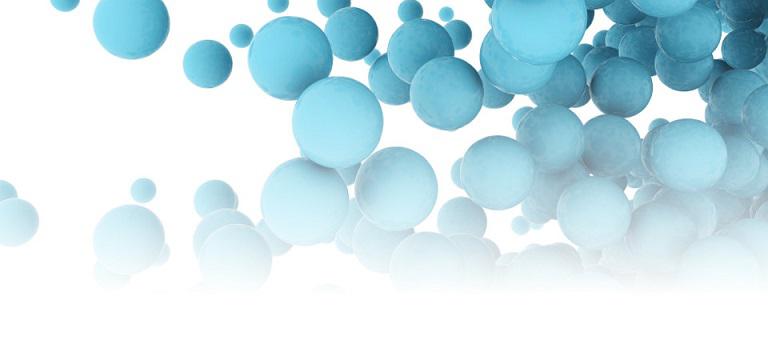
/newsMicroencapsulation Market Deep Analysis on Key Players - Dow Corning, Encapsys, Syngenta Crop Protection, Evonik Industries, 3M and Bayer
Market Study Report Adds Global Microencapsulation Market Size, Status and Forecast 2024 added to its database. The report provides key statistics on the current state of the industry and other analytical data to understand the market.
Extensive research is required for choosing the appropriate cor...

/newsGermany Airbag Market Size 2023: Global Share, Industry And Report Analysis By 2030 | Hyundai Mobis Co., Ltd. Key Safety Systems, Inc. Robert Bosch GmbH
Germany airbag market is expected to grow at a CAGR of around 6% during the forecast period. Germany Airbag Market research report refers to gathering and analyzing significant market data serve as best medium for various industry players to launch novel product or service. It is vital for key firms...
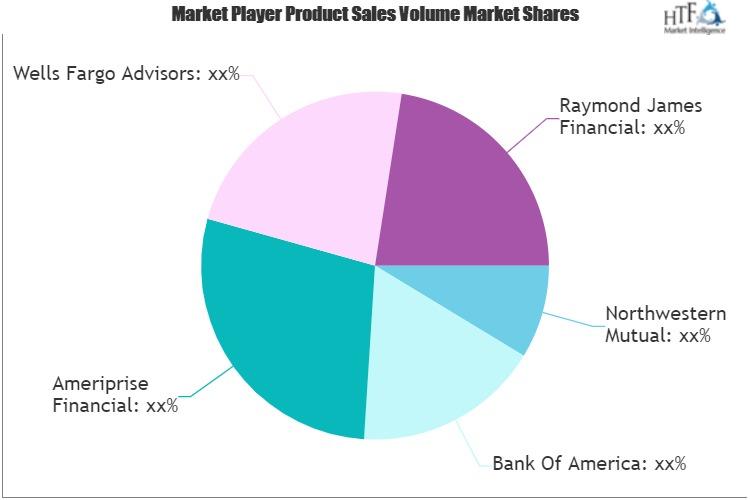
/newsSecurities Brokerages And Stock Exchanges Market Outlook 2021: Big Things are Happening
A new intelligence report released by HTF MI with title "Global Securities Brokerages And Stock Exchanges Market Survey & Outlook" is designed covering micro level of analysis by Insurers and key business segments, offerings and sales channels. The Global Securities Brokerages And Stock Exchange...
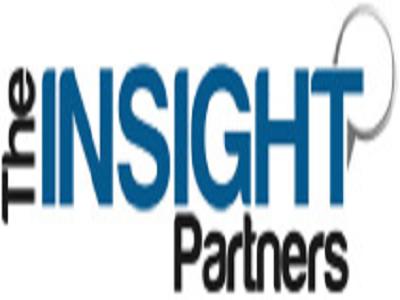
/newsRenewable Chemicals Market Emerging Trends and Competitive Landscape Forecast to 2028
The renewable chemicals market was valued at US$ 80,566.30 million in 2021 and is projected to reach US$ 1,76,750.76 million by 2028 it is expected to grow at a CAGR of 11.9% from 2021 to 2028. The research report focuses on the current market trends, opportunities, future potential of the market, a...
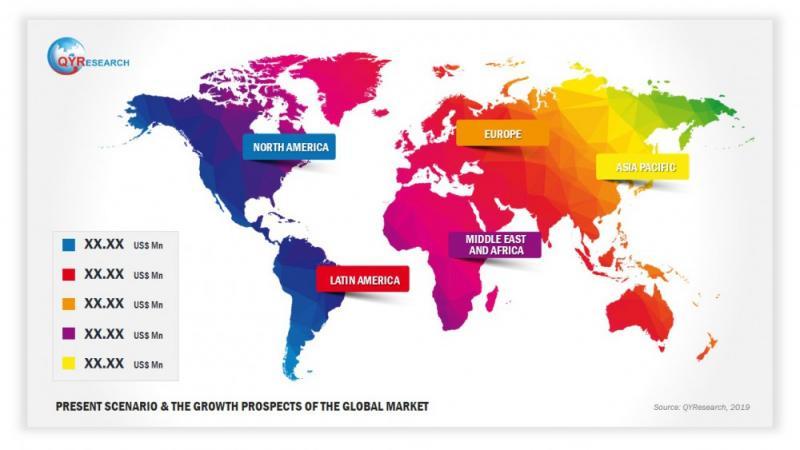
/newsHow Coronavirus is Impacting Cold Brew Coffee, Global Market Volume Analysis, Size, Share and Key Trends 2020-2026
"Market Latest Research Report 2020:
Los Angles United States, February 2020: The Cold Brew Coffee market has been garnering remarkable momentum in the recent years. The steadily escalating demand due to improving purchasing power is projected to bode well for the global market. QY Research's lates...
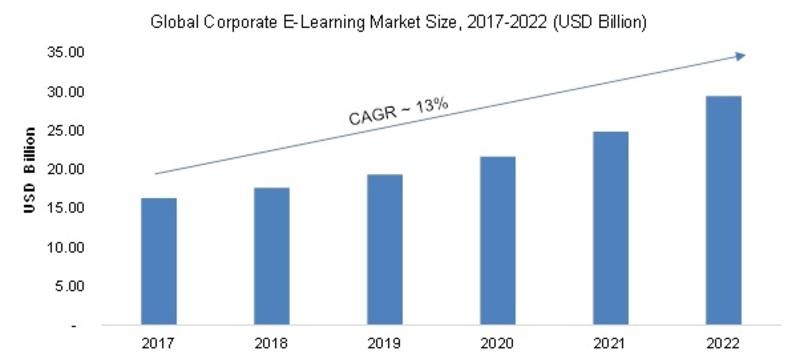
/newsCorporate E-Learning Market - Global Industry Size, Share, Key Players Analysis that are Infor, SkillSoft Corporation, Adrenna, CERTPOINT Systems and others with Regional Forecast to 2022
Overview:
E-Learning is used to enhance the learning procedures for newer job requirements and to make employees sound about the internal and external changes in the market and respective organizations. This method has created considerable differences in the ways of training and developing employee...
